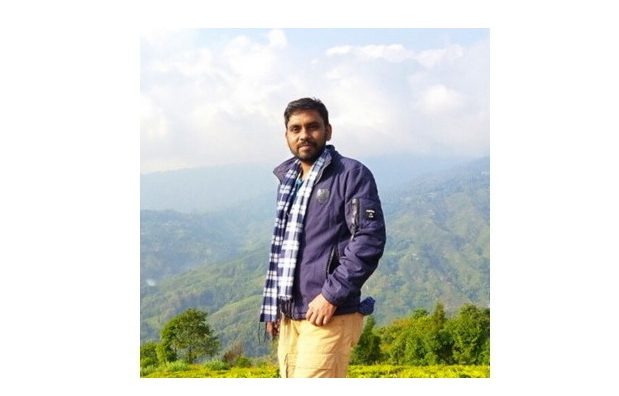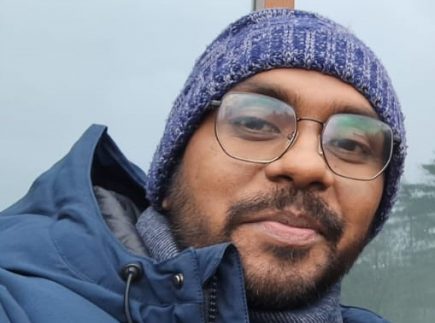
Indian researcher Manob Das from the University of Gour Banga recently arrived in Vilnius to conduct research at Mykolas Romeris University’s (MRU) Environmental Management LAB headed by MRU Prof. Paulo Pereira.
Das, whose PhD topic is “Urban Ecology and Well-Being in Kolkata,” said he will be spending the next few years conducting research at the LAB as well as collaborating with researchers from Portugal and Spain who are in the Vilnius-based LAB.
Part of Das’ research includes working on the Europe Horizon SELINA and “InBestSoil” projects that the LAB is involved with.
“I was invited to come to Lithuania to do research in 2022,” said the 29-year-old researcher who says the trip to Vilnius was his first to Europe.
“It’s a new experience,” he said. “Everywhere where there is something new, some time is needed for adjustment and getting accustomed. The most challenging thing for me is the Lithuanian winter with all the snow on the ground,” he added.
However, the researcher, concerned about urban ecology and climatology, said that he is investigating how eco-environmental conditions are affected in cities due to urbanization induced land use and land cover changes.
Another problem that researchers are tackling is the air pollution that now plagues many cities in Developing countries like India’s capital New Delhi, and other cities throughout the world.
“Delhi is one of the most polluted cities in the world,” the researcher said with sadness. “In Delhi, you have to wear a mask, particularly during winter and the pollution level reaches above the bearable limits” he added.
Das said that the additional difficulty many big cities face throughout the world is climate change. “It’s a big problem in developing countries. In cities, the land surface temperature is increasing over the periods of time and temperature is always higher in cities as compared to rural areas what we call it ‘urban heat islands’ effect. It has significant impact on the local thermal environment. .
In Cities, you find that the closer you are to the center of the city, the higher the temperatures. On the outskirts of the city, the temperature is lower. The conversions of pervious surfaces (such as vegetation cover, water bodies) into impervious surfaces (built-up areas) are the major cause for increasing temperature in cities.
In some cities of the developed countries, cities have implemented “greening strategies” to mitigate the heat. The green infrastructure (GI) in the cities should be integrated into urban landscape planning and management. The conservation of GI is not only important to mitigate eco-environmental problems rather enhance well-being of the people.
“We need green spaces or open spaces for people in cities to enhance the physical and mental health. We realized the important of the green spaces and open spaces in crisis periods. During COVID-19 the problem was highlighted when people stayed home and did not go out much. As a result, mental health of individuals suffered,” he noted. “If you spend time outdoors – in nature, it helps reduce mental health problems or keep them at bay,” he added.
Cities in India, many overcrowded with few green spaces and open spaces, face many challenges, the researcher said.
“The cities are becoming the engine of the socio-economic development in India. Therefore, cities need to be better planned and managed. It’s very challenging. The problem with lack of effective strategies is more evident in the cities of developing countries like India. The problem is not so much apparent in European cities.”
Indian urban planners and researchers have started to examine the situation and working for the betterment of the cities. Recently, the government is focusing more on the planning and smart cities. For example New Town in Kolkata is a planning city with well equipped infrastructure and landscape planning. We, the researchers are working to transform India; of course we need some more time. The challenge for researchers and academics is how to make cities more livable for those now calling those places home.
“We are working as a very enthusiastic research group and trying to identify the problems related to eco-environmental condition. I hope our research works will be very helpful for human society”,” said Manob Das.
